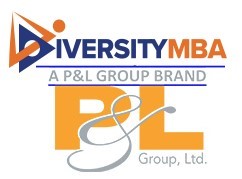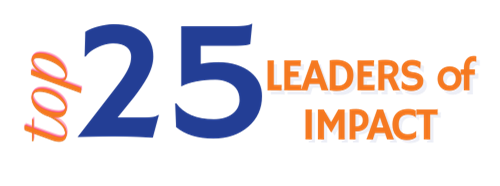“Diversity isn’t just something we talk about; it’s who we are. It’s how we’re able to deliver on the promise of our mission — saving people money so they can live better,” says Donald Fan, senior director of Wal-Mart’s Office of Diversity. “Our unrelenting growth and future success depends on our ability to attract diverse talent at all levels of the organization. It drives innovation and enables Wal-Mart to better serve its customers. It’s a business advantage.”
The proof is in the numbers. As fiscal year ending January 2009, Wal-Mart had $401 billion in sales. Among its 2 million associates are 257,000 African-Americans, 171,000 Hispanics, 41,000 Asian Americans, 5,900 Pacific Islanders, 16,000 American Indian and Alaskan, 430,000 50 and older, and 869,000 women. In 2008, Wal-Mart experienced a net growth of more than 33,000 associates, including 13,000 women and 16,000 minorities. Of the first and mid-level officials and managers, women and minorities represent 40.9% and 25.3%, respectively.
Through a variety of diversity and inclusion initiatives, Wal-Mart is able to attract, hire, develop, and retain talent. Its Diversity Goals Program is focused on the enhancement of its management pipeline through inclusion, says Fan: “We hold more than 50,000 officers and key senior managers accountable by leveraging up to 15% of incentive bonuses to the achievement of diversity goals. Additionally, diversity reflects 10% of our annual management performance evaluation.” Managers are required to mentor at least three associates, including those of diverse race, gender or background.
Ramping Up Recruiting
Wal-Mart goes beyond traditional channels to seek potential talent. In 2008, it focused on strategic relationship building with diverse organizations, increasing its investment in national organizations, recruiting events and scholarships. It increased its visibility at career fairs and national conferences and upped participation in regional, local and national diverse professional group events.
“National recruiting events also contributed to the success of our board placement and representation from members of management. New board placements include the National Association of Women’s MBAs, as well as Tennessee State University and Cheyney University,” says Fan. Wal-Mart sponsored the PhD Project to help increase the number of faculty from diverse background in business schools; advanced its relationship with the National Black MBA Association; and initiated a community service project for NBMBAA’s Leaders of Tomorrow program, which identifies, mentors and educates talented high school students from across the United States.
Wal-Mart’s internship program taps into the talent pipelines of organizations such as Career Opportunities for Students with Disabilities and institutions that serve minorities like the Thurgood Marshall Fund and the Hispanic College Fund.
There are training and development programs designed to take employees to the next level. The MBA Leadership Program (MLP), for example, is a six-month program specifically for graduated MBA students. Key leaders sponsor each participant during the program. After completing, participants should be prepared to assume key management positions within Wal-Mart stores.
Diversity Runs Deep
Diversity isn’t just practiced in-house, but outside Wal-Mart. Through Mobility International USA, the Wal-Mart Foundation empowers women with disabilities by strengthening their leadership skills and providing tools to expand employment opportunities for women with disabilities in their communities. Wal-Mart’s Brazil Institute’s Income Generation Project sponsors projects focused mainly on women that are the head of the household or who have been domestically abused, helping to teach them a profession and support the local handicraft culture.
The company sponsored the Hispanic Women’s Conference and Latina Youth Leadership Conference, “Latina Power: A Call to Action in Phoenix” in 2008. It co-led the first South Asian Excellence awards, which recognized South Asian achievement in the U.S. It was televised to seven countries and seen by more than a billion people.
And Wal-Mart shares the wealth. It does business with thousands of diverse suppliers to the tune of more than $6 billion in 2008. A team of key executives serves on the Supplier Diversity Internal Steering Committee, which works to integrate supplier diversity into the company’s procurement practices. “In 2008, we expanded our business with minority- and women- owned companies by more than 25 percent, over 2007,” says Fan.
Wal-Mart’s success depends on its people. “We realize we must maintain a welcoming work environment where our unique differences and perspectives are embraced and valued,” says Fan. “We serve our associates as customers, we develop them and provide opportunities for career growth.”
And the future? “We remain fully committed and will continue to seek new and creative ways to provide more opportunities for our associates; integrate diversity and inclusion further into our business; and demonstrate global cultural competence among our leaders,” Fan says. “We look forward to achieving even greater business results.”









